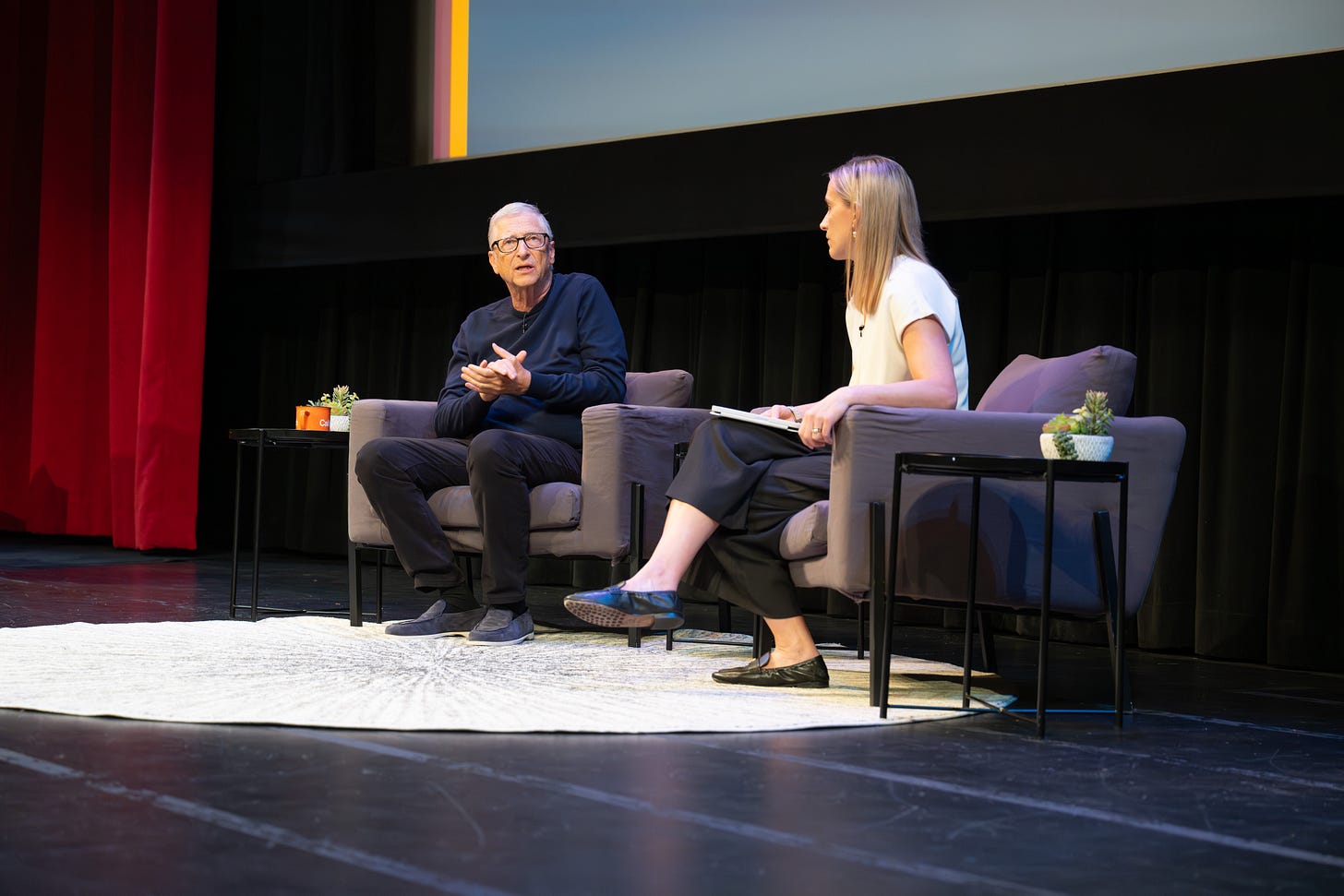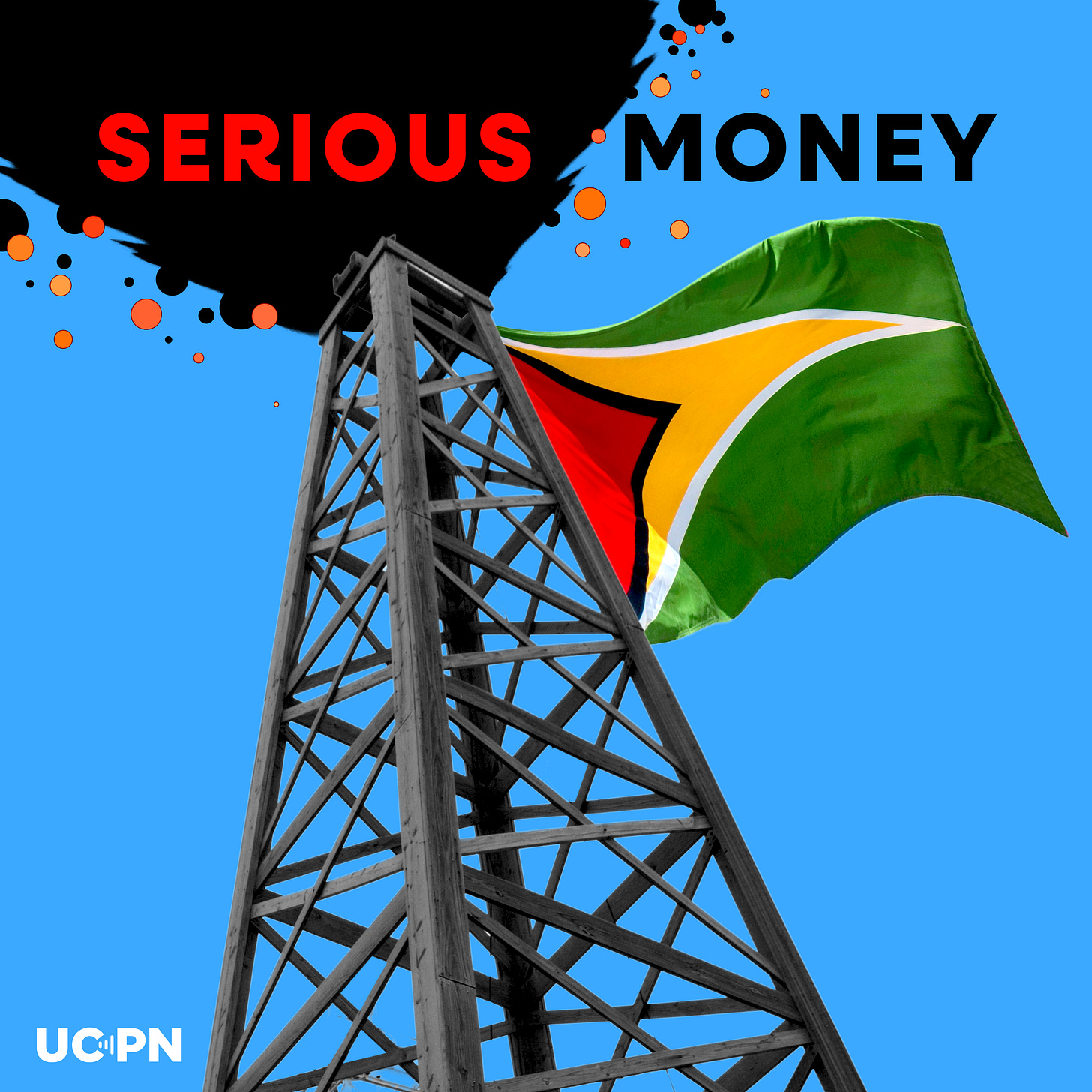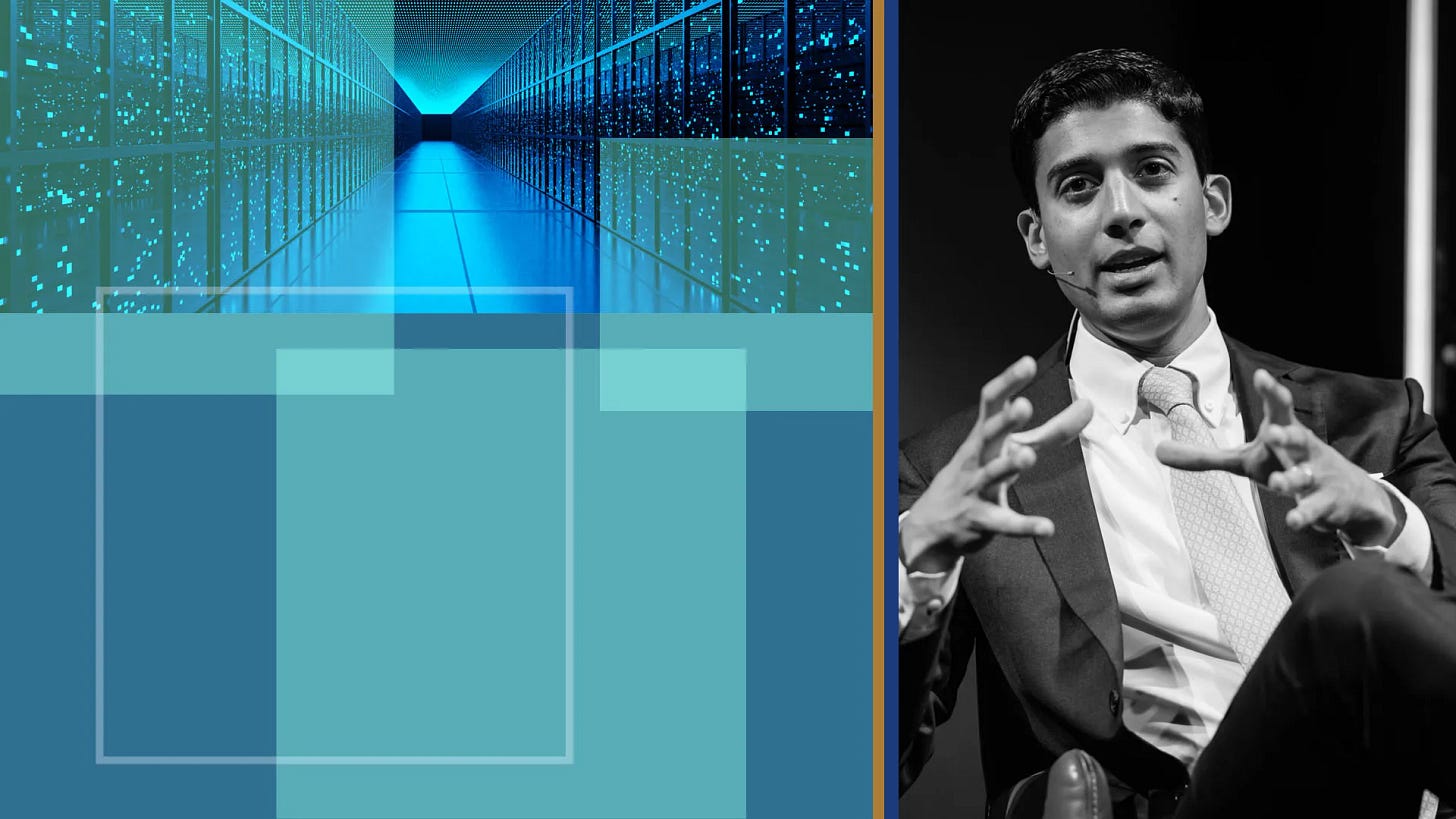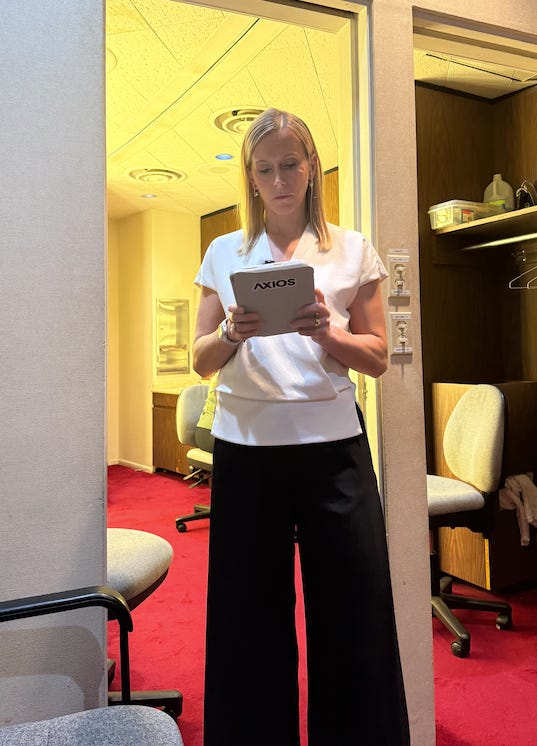Bill Gates, Guyana and AI oh my!
My journalism from the last two weeks in a nutshell
Read ‘til the end if you want to laugh!
Bill Gates defends contentious climate shift
Bill Gates defended criticism this week from all sides about his controversial memo calling for a shift to prioritizing human welfare in climate debates.
Why it matters: Gates’ response to the widespread and polarizing reactions to his own shifting positions shows the high stakes of this debate and his influence as a major funder of both climate and public health initiatives.
Driving the news: Gates, in an interview with Axios Monday night in front of roughly 1,000 Caltech students, talked at length about the memo, his broader views on energy and climate change and more.
“I’m glad people are listening,” he said, before adding that it was hard to convey “nuanced positions nowadays.”
State of play: Since the Microsoft co-founder published the memo on Oct. 28, reaction has been wide-reaching and fierce. Numerous conservative leaders — including President Trump — are cheering what they described as a wholesale retreat for the billionaire philanthropist.
“It’s a gigantic misreading of the memo,” Gates said of Trump’s post and others like it. He said his funding toward addressing climate change and public health measures are both going up.
“I didn’t think the memo was going to convert the non-believers into believers, and sure enough, it didn’t convert them,” Gates said.
Context: Gates has ramped up his funding of the Gates Foundation while announcing its closure in 2045. He cut some parts of his clean energy group, Breakthrough Energy, earlier this year, but he is continuing his venture capital investments and has talked about increasing them.
Friction point: Gates also pushed back against climate scientists who said he was setting up a false dichotomy pitting climate efforts against foreign aid.
“What world do they live in?” Gates said. He went on to say that foreign aid budgets going to poorer countries do often choose between climate and health. “This is a numeric game in a world with very finite resources, more finite than they should be,” Gates said.
What’s next: Read the full story in Axios.
Catch up fast:
Tiny Guyana’s eye-popping ascent on oil production and wealth
Guyana is racing ahead on oil production and wealth since Exxon struck crude off its coast a decade ago.
Why it matters: The South American nation, about the size of Idaho, shows how quickly oil money can transform — and test — a country.
State of play: A new episode of the “Shocked” podcast explores how oil cash is reshaping Guyana and then zooms to Texas to see similar forces at work.
The big picture: This newfound oil is catapulting Guyana to the top of the world’s economic growth.
The IMF says Guyana led the world with an average 47% real GDP growth from 2022 to 2024, propelled by Exxon’s offshore projects.
Reality check: Challenges persist, of course, including an ongoing border dispute with Venezuela and charges of corruption, which the oil wealth risks exacerbating.
Guyana also boasts one of the world’s largest virgin forests, which allows it to keep describing itself as “net zero” despite rapidly growing oil production.
Friction point: We reference a BBC interview with President Irfaan Ali last year that got heated.
When the journalist asks if its forest gives it a right to drill for oil, Ali responds: “Does that give you the right to lecture us on climate change? I want to lecture you on climate change.”
In a related exchange about Greenpeace, Ali says: “Who is going to pay for the development and advancement of our country? Are you going to pay? It’s not coming from anywhere. It’s not coming from Greenpeace or anyone else.”
Follow the money: Let’s share two strikingly different figures:
$1.8 billion: That’s how much the World Bank has given Guyana from 1969 to 2024, the latest available number (adjusted for inflation), according to calculations done by the University of Chicago’s Institute for Climate and Sustainable Growth. Most was loaned for specific purposes, so it’ll have to be paid back.
$6.3 billion: This is what Guyana has earned by allowing Exxon to drill for its oil from 2019 to 2024.
What’s next: Read the full story here.
Catch up fast: Another recent Shocked episode got in the weeds water on sea level rise and its tangible impacts.
Cleantech veteran hopes to “turn AI energy crisis on its head”
As founder of one of the buzziest startups at the intersection of energy and AI, Varun Sivaram is having a moment.
Why it matters: His company, Emerald AI, just landed its first commercial deployment and announced new funding — all while Sivaram was named to Time’s Climate 100 and released a TED Talk.
The big picture: Emerald AI sits at the forefront of a nationwide — and increasingly global — race to build data centers at breakneck speed and to power their enormous electricity demand.
“My hope comes from turning the AI energy crisis on its head,” he told Time.
“While the narrative is often about AI’s massive and problematic electricity consumption, I see something different: the emergence of the single greatest tool we’ve ever had to manage a clean energy grid.”
Driving the news: In addition to the Time accolade, just in the last week:
A coalition led by Nvidia announced the first commercial deployment of Emerald AI’s software at a data center in Virginia.
Emerald AI announced $18 million in additional seed money (after coming out of stealth in July to announce $24.5 million).
And his TED Talk is publishing on Monday.
How it works: The startup’s software adjusts energy draw in real time — a model Sivaram and partners say can ease strain on the grid and curb electricity costs.
Catch up quick: At 36, Sivaram is already a cleantech veteran.
A physicist by training, he’s led innovation at offshore wind giant Ørsted and served as a senior aide to U.S. climate envoy John Kerry under President Biden.
Read my exclusive on Emerald AI’s new partnership with Nvidia.
Kicker quote
Bill Gates on how concerns over AI could impact people:
“Someday, the AI is going to say to me, ‘Hey, stop messing around trying to eradicate malaria. I’m so much smarter than you. You just go play pickleball, and I’ll get back to you.’ I’m going to be a little disappointed, like, ‘Oh geez, I’m not that good at pickleball.’”





